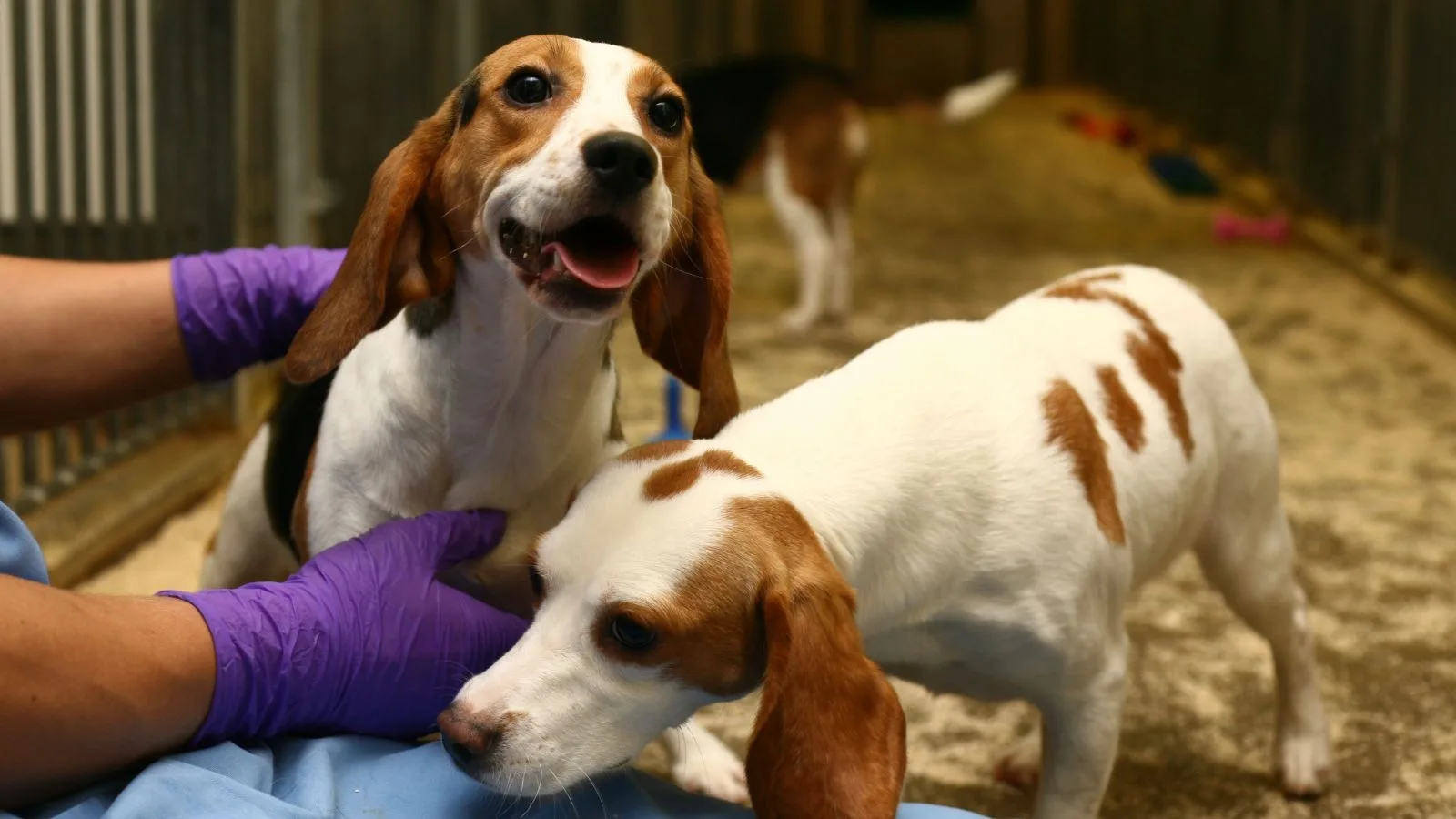I saw your piece on Animal Rising and wondered if you’d like a counter-quote? “Around 80,000 dogs will be killed in the UK this year, not for medical research but as unwanted companion animals. If the activists just wanted a pet, they could have done better with fewer steps by adopting one of those.
“However, they clearly wanted to use the stolen dogs for PR purposes to highlight their incorrect beliefs around how and why dogs are used in science. Safety testing was introduced in the late sixties after tens of thousands of children were maimed and killed by unsafe medicines and these experiments have prevented a repeat in the years since.
Free and happy – Max the beagle ‘liberated’ by activists from MBR Acres near Huntingdon
“It is a great relief that the stolen dogs are doing well since it can be upsetting for animals to be suddenly introduced to unfamiliar settings. Well-meaning but technically incompetent activists often get this part wrong, leading to dogs that are jumpy and nervous.
“Activists tend to hang out in echo chambers agreeing with each other, so will be unaware that animals cannot be used if there is an alternative and that animals in experiments come from specialist breeders because it was demanded by their own movement in the 1980s.
“Despite their trolling, work led by the UK is underway to replace dogs in safety tests with computer simulations. These will be used as soon as they can be, and the technology should be exportable internationally. It is this work, not stealing dogs, which will ultimately end animal testing.”
Chris Magee | Head of Policy and Media
Understanding Animal Research
Understanding Animal Research – this from their website
Understanding Animal Research is a Mutual Society (not-for-profit organisation) that explains why animals are used in medical and scientific research. We aim to achieve a broad understanding of the humane use of animals in medical, veterinary, scientific, and environmental research in the UK.
We are funded by our members who include universities, professional societies, industry, and charities.
The information provided by Understanding Animal Research is based on thorough research and an understanding of the facts, historical and scientific.

















